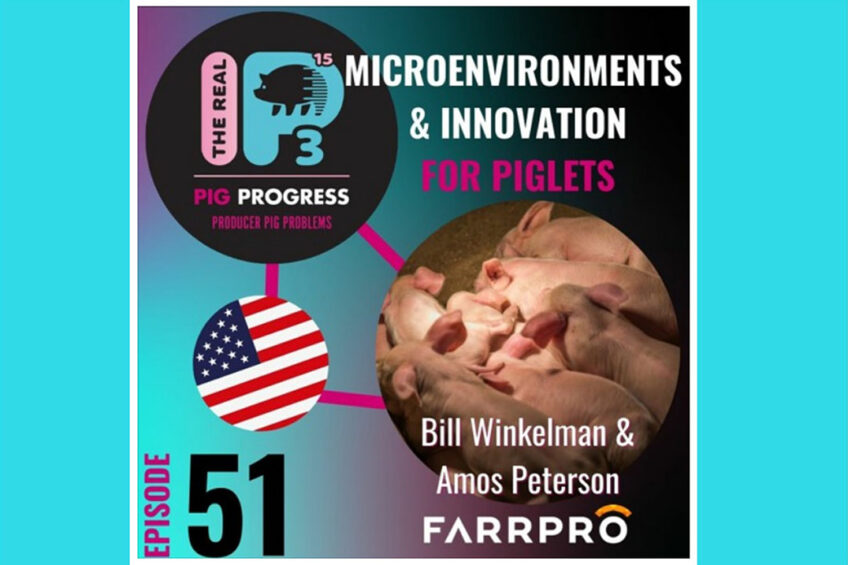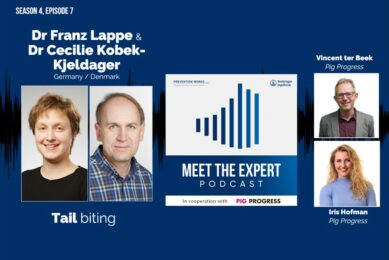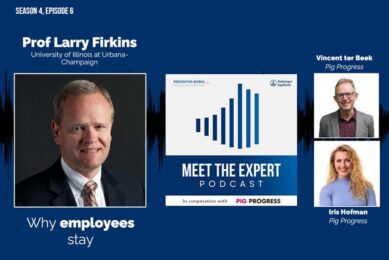Podcast: Micro-environments and innovation

In this 51st episode of the Real P3 podcast, Dr Casey Bradley speaks to Amos Petersen and Bill Winkelman from Farrpro and together they discuss various heating options and innovations within the industry.
The Real P3 podcast series is an initiative where pork professionals from around the globe share their thoughts, insights, and solutions to their day-to-day challenges in the pig farming and production industry.
Farrpro‘s Founder and CEO, Amos Petersen, has a background in electrical engineering and economics and comes from a family of farmers. He launched Farrpro in 2017 and offers heat lamps, heat mats, and animal information systems and software.
“Hard listening”
Dr Bradley asked Amos how he built his team to inspire innovation given that he does not have the “traditional livestock people” in his company. He spoke about learning about the problem, parameters, and constraints, understanding the science and engineering, and then an “extended listening tour”, which he said, included face-to-face meetings with those in the sector. He also highlighted the value of access to experts.
Petersen shared information on the thermal characteristics of the pig, frequencies of infrared that can get past the body’s natural defences, as well as a pig’s metabolism, the behaviour of pigs that are too warm, and a “nano mat” for pigs, which Winkelman agreed is “one of the most exciting value propositions”.
Diversity of experience brings innovation
Bill Winkelman, a “farm kid from Iowa” with a background in accounting, is the COO of Farrpro. He previously work for Smithfields for a number of years where he gained a huge amount of knowledge on the financial side of pig production.
Winkelman said that there are many coming into the industry “from the outside” fresh out of management school or grad school, or from a different industry, and they bring with them experiences and fresh ideas and perspectives to the hog industry and ask questions “that we wouldn’t have traditionally asked.” Furthermore, many of the challenges that the sector is faced with, particularly around labour, is driving innovation, he said. Collaboration, he added, is extremely valuable.











